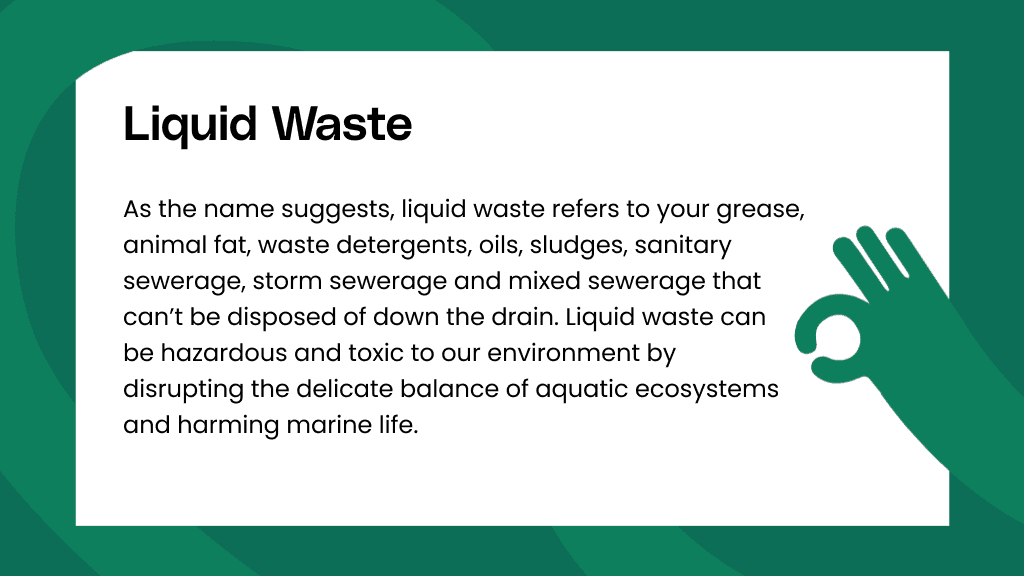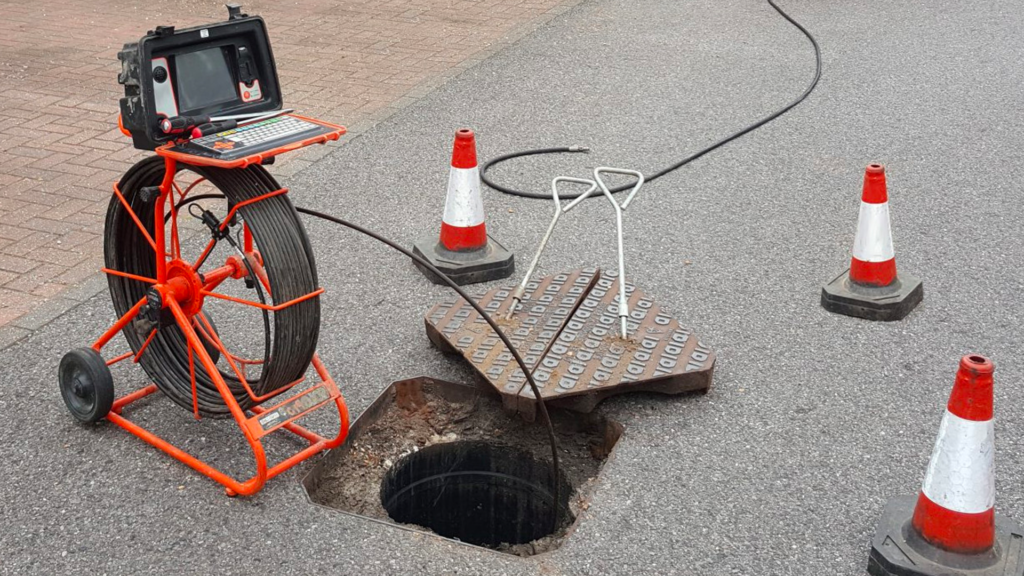Things about Reclaim Waste
Things about Reclaim Waste
Blog Article
The Basic Principles Of Reclaim Waste
Table of ContentsThe Of Reclaim WasteThe smart Trick of Reclaim Waste That Nobody is DiscussingExamine This Report about Reclaim WasteAbout Reclaim WasteNot known Details About Reclaim Waste
Residential sewage waste refers to the waste and items from a property septic storage tank. The appropriate management and disposal of residential sewage waste call for fluid waste to be moved to a sewer therapy plant where the appropriate approaches and equipment are applied to cleanse and dispose of waste.
Business waste often consists of prospective risks, such as flammable materials or a combination of fluid and strong waste items, and needs a more innovative and comprehensive disposal process. The disposal of commercial waste commonly includes the purification of waste before transportation to ensure safe and appropriate disposal. Industrial waste is produced from by-products and overflow of commercial procedures and production.
This kind of waste can not make use of the very same sewage administration transportation or processes as septic or commercial fluids. The hazardous waste monitoring process needs the assessment and screening of fluid waste prior to it undertakes the disposal procedure (liquid waste removal). Overflow waste is the fluid waste that comes from drainage and excess stormwater in extremely inhabited locations or cities
Drainage waste can create contamination and flooding otherwise taken care of effectively. Discover more about drain cleaning and waste monitoring. Guaranteeing appropriate waste management can avoid disasters and decrease ecological damage. Both people in domestic setups and professionals in commercial or manufacturing sectors can take advantage of understanding the processes and laws of fluid waste management.
Reclaim Waste Fundamentals Explained
Contact PROS Solutions today to learn more about our waste monitoring and disposal services and the appropriate ways to look after the fluid waste you produce.
(https://reclaim-waste-48112599.hubspotpagebuilder.com/reclaim-waste/expert-liquid-waste-removal-and-disposal-services-your-complete-guide)Do you know what happens to your water when you draw the plug, flush the commode or drain pipes the cleaning machine? No? Well, it deserves understanding. This supposed 'wastewater' is not only an important source but, after treatment, will certainly be released to our land, rivers or the sea. Utilized water from toilets, showers, bathrooms, kitchen area sinks, laundries and industrial procedures is known as wastewater.

water used to cool down equipment or tidy plant and equipment). Stormwater, a kind of wastewater, is runoff that streams from farming and urban locations such as roofing systems, parks, yards, roadways, paths and rain gutters right into stormwater drains, after rain. Stormwater streams untreated directly to neighborhood creeks or rivers, eventually reaching the ocean.
Getting The Reclaim Waste To Work
In Queensland, a lot of wastewater is dealt with at sewage therapy plants. Wastewater is transferred from domestic or industrial sites through a system of drains and pump stations, referred to as sewerage reticulation, to a sewage treatment plant. City governments build, maintain and operate most sewage therapy plants. Operators are licensed under the Environmental Management Act 1994 to discharge treated wastewater at an appropriate ecological requirement into waterways.
The Department of Natural Resources recommends city governments about managing, operating and maintaining sewage systems and therapy plants. In unsewered locations, neighborhood federal governments may need homeowners to install specific or family sewage treatment systems to deal with residential wastewater from bathrooms, cooking areas, washrooms and laundries. The Department of Natural Resources authorizes the usage of family systems when they are verified to be efficient.
Most stormwater receives no therapy. In some brand-new neighborhoods, therapy of some stormwater to eliminate trash, sand and crushed rock has actually started utilizing gross pollutant catches. Wastewater therapy occurs in 4 stages: Eliminates strong matter. Bigger solids, such as plastics and various other items wrongly discharged to sewers, are removed when wastewater is gone through screens.
Makes use of little living microorganisms recognizes as micro-organisms to break down and eliminate remaining dissolved wastes and great particles. Micro-organisms and wastes are integrated in the sludge.
Little Known Questions About Reclaim Waste.
Nutrient elimination is not available whatsoever sewage treatment plants since it needs pricey specialised equipment. It is becoming a lot more usual in Queensland. Clear liquid effluent created after therapy might still have disease-causing micro-organisms. If this effluent is released into waterways such as rivers or the sea, the micro-organisms will eventually pass away out.

Most wastewater streams into the sewerage system. Under the Act, regional governments provide approvals and permits for environmentally relevant tasks (ERAs) including wastewater releases that could have a regional influence.
About Reclaim Waste
Or else, examples are considered laboratory evaluation. Commonly several tests are required to develop the levels of each of the different contaminants such as oils, hefty metals and pesticides in water. Tracking gives factual information about water high quality and can validate that permit conditions are being met. The info acquired with link surveillance offers the basis for making water high quality decisions.
Report this page